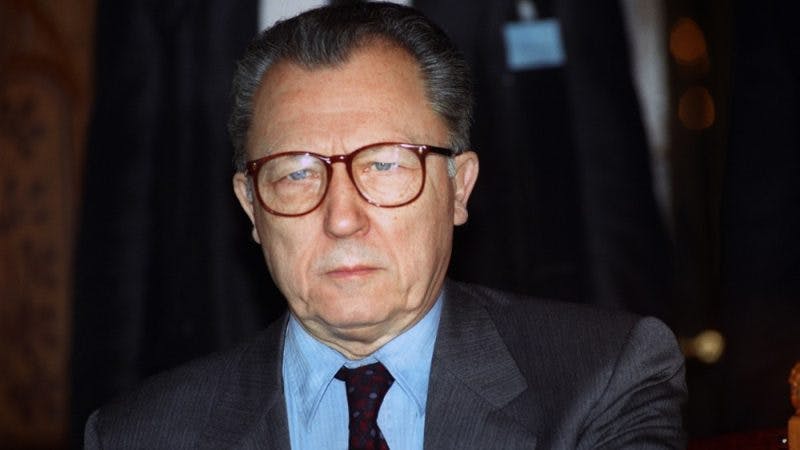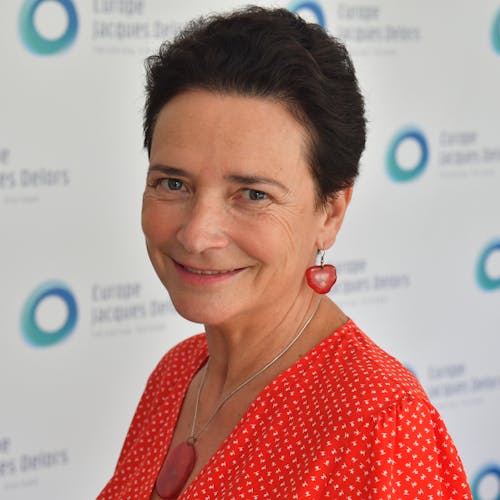Jacques Delors’ little-known commitment to environment, sustainable development
Jacques Delors, former president of the European Commission (1985-1995), is little known for his work on the environment, but he was instrumental in laying the foundations for several European laws that are currently in force, argues Geneviève Pons.
Geneviève Pons was an adviser on the environment in the cabinet of former European Commission president Jacques Delors from 1991 to 1995. With Pascal Lamy and Étienne Davignon, she founded the Institut Europe Jacques Delors, of which she is currently vice-president and director general.
When I joined his cabinet at the beginning of 1991, Jacques Delors asked me to gather all the information he needed to decide whether to join the fight for a CO2 tax.
I went back to him with the pros and cons, and he came out in favour of the tax.
He wanted the proposal to be adopted before the Rio Earth Summit, so a fierce battle began in which divergent national interests and lobbies were palpable. At the end of this battle, which requested 14 preparatory meetings, the tax won the vote in the Commission by a wide margin.
This was two weeks before Rio. As he had wished, Europe, under his impetus, had sent a signal to the world that saving the planet had a price that polluters had to pay.
Jacques Delors was present in Rio to sign the Convention on Climate Change, and his words there have a particular resonance.
“The concept of sustainable development invites us to relearn the value of collective goods and common resources and to rediscover our concern for the long term.”
It was already about working together to build a better world, to fight climate change, to protect our forests and biodiversity and, through the agenda for the 21st century, to better address inequalities between nations and within our societies.
On his return from Rio, Jacques Delors asked me to help him outline the new development model he envisaged for Europe. His ideas were set out in Chapter 10 of what can be seen as his legacy, the White Paper on Growth, Competitiveness and Employment, subtitled “Challenges and Ways Forward into the 21st Century”.
In this chapter, entitled “Reflections on a new development model”, he analyses the imbalances at the root of both unemployment and overexploitation of natural resources, and the ways out.
These include rebalancing the tax system so that it weighs less on labour and more on natural resources, encouraging economic operators to put a fair price on them and conserve them. It reaffirms the need to price carbon dioxide, develop a circular economy, and measure value added and growth differently.
Many of his ideas were implemented much later and often in a watered-down form. For example, the CO2 tax proposed in June 1992 led to the European Emissions Trading Scheme (ETS) years later because unanimity in the Council was impossible to reach.
It is only with the CBAM (Carbon Border Adjustment Mechanism), adopted on 25 April 2023 that the ETS finally seems likely to deliver the desired incentive effect.
More fundamentally, the overall philosophy of his proposals had to wait until the Green Deal was finally at the heart of European public action.
The day after his death, as I was driving into Paris, a major television channel called me and invited me to say a few words for its 1pm news bulletin. I felt the spirit of Jacques Delors delighted that an opportunity was given to me to highlight his little-known environmental commitment.
Unfortunately, the channel only kept a passage on Erasmus, a great achievement, admittedly better known but perhaps less important than his commitment to a different model of development, more respectful of our natural resources.


